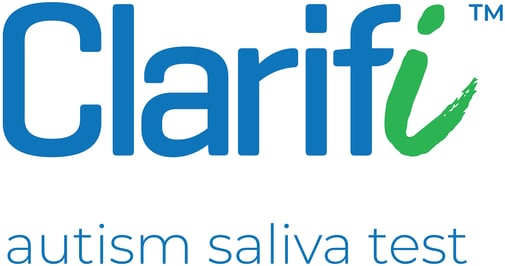
- November 20, 2019
- clarifiasd
- No Comments
- epigenetics, autism spectrum disorder, autism saliva, ASD, Research, parents, autism, saliva test, study
New Epigenetic Test for Autism- What Are Parents Thinking?
If you know someone who has been through the autism diagnosis process, or if you have been through it yourself, you know it can be a long journey of searching for answers.
From the point of first noticing early signs of autism to the actual diagnosis, the process can take years. While children with autism have unique skills and talents, delaying a diagnosis can also mean a delay in receiving important services.
Fortunately, there are new tests emerging that may be able to assist with providing families answers earlier, and more objectively. Among these include genetic tests that search for specific genes related to autism and other associated conditions, and epigenetic tests measuring RNA molecules that turn on and off gene expression. Epigenetic testing for autism, in particular, is a new scientific finding and thus, less familiar to the general public.
In light of these novel approaches in autism diagnostics, researchers from SUNY Upstate Medical University and Penn State College of Medicine were interested in how well parents understand the science behind these tests, their attitudes toward molecular testing for autism, and concerns about how results could be used. As a result, when they began investigating epigenetics in autism, they also administered a survey to 244 parents, about half (54%) had children with autism.
The findings, published in the Journal of Autism and Developmental Disorders, shed light on important implications of genetic/epigenetic testing associated with autism diagnostics.
For one, despite having relatively little understanding about the science behind these tests, parents were very interested in having their children tested.
Indeed, virtually none of the parents doubted the scientific evidence behind the tests and expressed overwhelming interest particularly in saliva-based epigenetic autism tests for kids. In light of this, the authors pointed out that it is imperative that results be reviewed in consultation with health professionals, and that social and ethical implications be well understood before introducing such tests to the public.
One of the overarching objectives of the study, according to Kayla Wagner, principal author on the paper, was understanding these implications when developing and marketing new epigenetic and genetic tests.
“I believe that healthcare companies have an ethical obligation to fully understand and incorporate parent needs and perspectives in the development of any of these new autism diagnostic tools, especially if it is biological in nature. This would necessarily involve clinicians, scientists, legal experts, and the public working together to develop a responsible ethical approach to delivering epigenetic results, and protecting those results in a manner that prioritizes individual patient interests.”
Surprisingly, overall interest in ASD testing and many of the parental perspectives reported in the current study was not dependent on child developmental status. Parents of typically developing children also endorsed value in molecular testing, despite the fact that these parents had no children with ASD. This may be due to the growing public awareness of ASD prevalence and the importance of early detection, leading authors to further consider appropriate application of this technology.
Dr. Steve Hicks, M.D. Ph.D. from Penn State Medical College of Medicine who co-authored the study agrees.
“There are several ethical, policy, and social challenges that need to be addressed surrounding genetic and epigenetic testing for ASD. These include the potential impacts test results may have when identifying an asymptomatic child as high risk, and the social implications and stigma associated with releasing this information to parents, schools and health professionals.”
Quadrant Biosciences is a translational life science company in the final stages of releasing an epigenetic test for autism. Their CEO, Richard Uhlig, explains why his company uses this unique approach in technology development. “It is incumbent upon companies like ours to fully understand the ethical landscape surrounding the release of any diagnostic tool, but particularly something as sensitive as ASD diagnosis. We take this responsibility very seriously and it informs how we approach all of our technology.”
Recent advances in biomedical research in ASD have demonstrated the potential for molecular testing to provide an early objective and accurate adjunct to childhood ASD diagnoses. This study showed that, though parents voiced few concerns about epigenetic/genetic testing, review of any molecular results with a trained healthcare professional will be crucial, given the implications of an ASD diagnosis and the complex nature of epigenetic/genetic measures.
Clarifi ASD is now available in the United States. You can learn more about how to get this new autism saliva test at ClarifiASD.com.
Wagner KE, McCormick JB, Barns S, Carney M, Middleton FA, Hicks S (2019). Parent Perspectives Towards Genetic and Epigenetic Testing for Autism. Journal of Autism and Developmental Disorders

